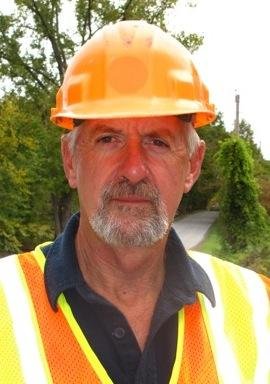2017 Rensselaerville election: Randall Bates for highway superintendent
RENSSELAERVILLE — When Randall Bates became Rensselaerville’s highway superintendent six years ago, he had a goal that he thought might be impossible. “My goal was to have all of our roads in a state where we have a 10-year renewal plan,” he said.
Having the roads in good condition would mean avoiding the high cost of reconstructing their bases. “In the beginning, it seemed impossible,” he said. “But now I think we can do it.”
It’s a tall order because the town has 77 different roads — 80 miles in all. But Bates said he has seven dedicated employees that get the work done.
And, in the winter, when it snows, “There’s no off time for the guys,” Bates said. “We have seven men and seven plow beats.”
Bates, who is enrolled in the Conservative Party, is running on the Republican line as well. He is unopposed.
Bates, 67, had worked for the state’s Department of Transportation for 32 years prior to becoming Rensselaerville’s highway superintendent.
He’s proud of a number of accomplishments in his department over the past six years. “Our equipment maintenance is good; we have minimal down time,” he said.
The department has new dump trucks that also function as plows, he said.
Bates said he buys used equipment at auction for a fraction of the price for new equipment. Some of the equipment he has purchased this way includes a paver, an excavator, and a road widener used for shoulders.
The most important road improvements that he has overseen are reconstructing bases using a modern technique where geotextile road fabric is laid down to form a barrier so the base and sub-base don’t mix.
Several years ago, Bates started making some of the town’s paved roads into gravelled roads. “All of our roads at one time, back in the day, had a shale or clay base,” he said. Clay, which is soft, can become unstable, he said. It was cured with a treatment of hot oil and stone.
“When it deteriorated, the dirt would come through,” said Bates. “It wasn’t practical to keep resurfacing.”
So the department rented a machine that Bates described as being like a giant rototiller. “It removes the asphalt; it creates a new base, which is stable.” After that base is graded, rolled, and compacted, eight inches of crushed stone is laid on top, which is then treated with liquid calcium chloride to bind it.
“It lasts well,” said Bates of roads treated in this way. “They don’t get dusty. They’re stable. It’s inexpensive and long-lasting.” And he said, in the future, if the decision is made to repave those roads, “It makes an excellent base.”
Currently, Rensselaerville has 55 miles of paved roads, and 25 miles of dirt roads, Bates said. That process has been used for several dead-end roads “with good results,,” Bates said.
Bates has been an advocate of shared services since he’s been in office. He participated in Albany county’s 2014 study, and considers shared services to be “essential,” he said.
“There’s a long history of sharing — both the workforce and equipment — in the Hilltowns, and with the county,” he said. “We couldn’t do without it.”
The recent directive from the state to have each county come up with a shared-service plan became controversial in Albany County, Bates said, because consolidation of departments — rather than just sharing — was discussed.
“It had a very negative effect on the process,” said Bates. “It made everyone get very defensive. At the end, it wasn’t included..”
Going forward, Bates said, “We can expand on sharing with trust and good faith … Consolidation was so divisive.”
Bates said that staying underneath the 2-percent tax-levy limit hasn’t been a problem for his department. “The highway budget is essentially flat,” he said. “I ask for tiny increases each year.”
Those increases, he said, are for “things we can’t control like health insurance and workers’ comp.”
Because of a reduction in the cost of oil, costs for material, primarily asphalt, have dropped. Rensselaerville spends about $400,000 annually on asphalt, Bates estimated, and had saved roughly $50,000 or 15 percent this year.
The same with fuel costs. About $80,000 was budgeted for fuel, which dropped 15 to 20 percent, he said.
This year, Rensselaerville got about $240,000 from the state’s Consolidated Local Street and Highway Improvement Program, known as CHIPs.
“It’s based on your mileage so that’s one way that having 80 miles of roads helps us,” said Bates.


